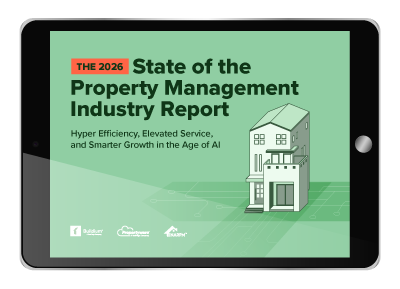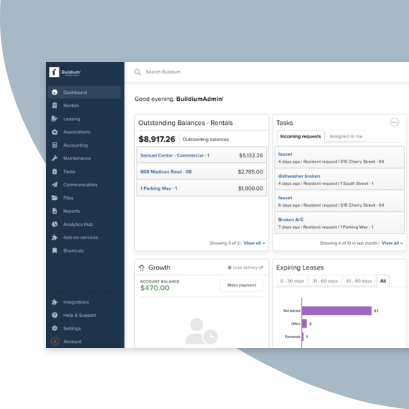Disclaimer: This blog post is meant for informational purposes only and does not constitute legal advice. Consult with a licensed attorney in Delaware for specific legal guidance
Whether you’re new to property management or want to refine your leasing process, you’ll want to start with a well-crafted lease agreement.
This guide will walk you through all the important components and the main legal considerations when writing a Delaware lease agreement. You can also download a free Delaware lease agreement template through the link above that you can customize to meet your specific needs.
What Is a Delaware Lease Agreement?
A Delaware lease agreement is a written contract between a property owner or manager and a tenant. It outlines the terms for renting a residential property, such as rent amount, duration, and responsibilities. This document serves as a legal foundation, helping both parties understand their rights and obligations.
Who Needs a Delaware Lease Agreement?
Anyone involved in renting residential properties in Delaware should use a lease agreement. This includes property managers, landlords, and tenants. For leases longer than one year, Delaware law requires a written and signed contract. Using a lease agreement protects all parties by clearly defining terms and reducing potential disputes.
Types of Delaware Lease Agreements
Delaware offers several lease options to suit different rental situations:
- Fixed-Term Lease Agreement: Standard contract for renting a home or apartment.
- Month-to-Month Lease Agreement: Flexible arrangement with no fixed end date.
- Sublease Agreement: Allows a tenant to rent out the property to another party.
- Roommate Agreement: Specifies terms between individuals sharing a rental unit.
- Commercial Lease Agreement: For renting business premises.
Each type serves a unique purpose and should be chosen based on the specific rental scenario.
Pro Tip: Buildium’s purpose-built leasing software can help you get even more efficient with your leasing process.
What Should a Delaware Lease Agreement Include?
A well-crafted lease agreement covers several key areas:
Parties Involved
Identify the property owner or management company and the tenant, including their contact details.
Lease Duration Dates
Specify the lease term, start and end dates, rent amount, due date, acceptable payment methods, and any penalties or procedures for rent increases.
Rent and Security Deposit Information
Detail the rent amount, due date, payment methods, late fees, and security deposit requirements, including collection, refund, and dispute procedures.
Occupancy Limits
State that only the tenants listed and their children may reside in the property. This provision helps prevent unauthorized occupants and supports enforcement if necessary.
Property Management Company & Tenant Responsibilities
Outline the responsibilities of both parties. For example, property managers should maintain habitable living conditions, while tenants should keep the property clean and avoid excessive noise.
Pet Policies
Clarify whether pets are allowed and any restrictions, such as size or number limits. Also, address tenant responsibilities for cleaning up after pets and covering any damages they cause.
Delaware Lease Agreement Addenda and Disclosures
Certain disclosures and addendums are required in residential lease agreements in Delaware. Keep in mind that this list is not exhaustive, so consult a legal professional if you’re unsure about what to include in your own agreements:
Lead-Based Paint Disclosure
For rental units built before 1978, landlords must provide a lead-based paint disclosure form and an EPA-approved pamphlet, along with any additional records or reports.
Landlord Identity Disclosure
Landlords must disclose the names and business addresses of all property owners or their appointed resident agents in the written rental agreement.
Summary of Delaware Residential Landlord-Tenant Code
Landlords are required to provide tenants with a written rental agreement and a summary of the Delaware Residential Landlord-Tenant Code before occupancy. This summary outlines tenant rights and responsibilities, helping you stay compliant with state regulations.
Security Deposit Holding Disclosure
Landlords must disclose the location of the security deposit account within 20 days of a written request from the tenant. Failure to provide this disclosure may result in the landlord forfeiting the security deposit to the tenant.
Bed Bug Disclosure
Landlords must disclose any known bed bug infestations to prospective tenants. If there is no history of infestation, this must also be stated. Landlords are prohibited from renting units they know to be currently infested with bed bugs.
Informational Materials on Legal Representation
As of November 22, 2023, Delaware landlords must provide tenants with informational materials about legal representation and available resources. These materials should be provided at the signing of a lease, upon renewal, when issuing certain notices, or upon a housing subsidy termination notice.
Optional Disclosures & Addendums
Optional disclosures and addendums, such as those addressing asbestos, mold, structural damage, plumbing defects, medical marijuana use, non-refundable fees, pool safety, and smoking, can assist with tenant management and limit landlord liability.
Consequences for Not Including Mandatory Disclosures
Landlords who fail to include mandatory disclosures in their lease agreements may face legal repercussions, monetary penalties, and unenforceable lease provisions. Complying with federal and state-mandated disclosures helps avoid fines and lawsuits.
Delaware Lease Agreement Laws and Regulations
Understanding Delaware’s lease agreement laws and regulations is another factor property managers need to pay attention to. Again, it’s always recommended to speak with a local legal professional for the most complete and detailed list of regulations:
Security Deposits
Delaware limits security deposits to a maximum of one month’s rent for leases of one year or more. Landlords must return the deposit within 20 days after the tenant vacates the property and provide an itemized list of damages if deductions are made. Failing to return the deposit within the required time may result in the tenant recovering double the amount wrongfully withheld, plus court costs.
Right of Entry
Landlords must provide tenants with at least 48 hours’ notice before entering the rental unit, except in emergencies such as fire or flooding.
Grace Period
Delaware provides a 5-day grace period before landlords can impose late fees. If the landlord does not maintain an office or designated place for rent payments in the same county as the rental property, the tenant is granted an additional three days before late fees can be charged.
Late Fees
Delaware law caps late fees at 5% of the monthly rent and prohibits landlords from charging late fees until rent is more than five days late. Landlords should clearly outline late fee policies in the lease agreement to improve transparency and avoid disputes.
Taking the Next Steps with Your Delaware Lease Agreement
By understanding and implementing these guidelines, property managers can create clear, effective lease agreements that lay the groundwork for strong leases that protect everyone involved. Make use of the free Delaware lease agreement template linked at the top of this guide to start drafting your own documents.
For a faster leasing process, consider testing out Buildium’s comprehensive property management software. You can give it a try with a 14-day free trial or by signing up for a guided demo.


